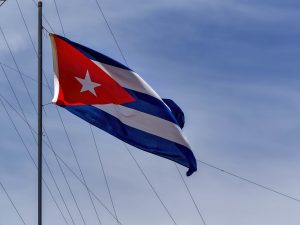The successful internet-based host finder and travel services company Airbnb settled with OFAC and agreed to pay a fine of $91,172.29 for violating the OFAC Cuba sanctions regime as it expanded its services to global travellers covering the island nation.
Airbnb’s has violated the sanctions program by servicing guests who for reasons that were not defined among OFAC’s permissible categories and the company’s failure to keep records.

Almost 3’500 Cuba-related payments processed
Airbnb’s own forensic review has revealed that the company has, in a span of four and a half years from September 2015 to March 2020, processed payments for 3’464 stays and “experiences” (services provided by Airbnb hosts that are paid via the system) for guests travelling to Cuba for reasons outside of 12 categories defined by OFAC.
OFAC regulates all travel to Cuba made from or via the United States. The nationality and the citizenship of the travellers do not matter as everyone departing from the U.S. for Cuba is required to abide by the rules.
The violations, according to the OFAC press release, are the result of the company scaling its services “without fully addressing the complexities of operating a Cuba-related sanctions compliance program for internet-based travel services.”

Technical shortcomings
Airbnb first launched in Cuba in 2015, and the process it used manual methods to screen hosts and guests for sanctions-related risks, later transforming the system into customized IP-blocking that allows Cuban nationals to act as Hosts while blocking them to transact as guests.
The sanctions breaches are due to deficiencies that belong to a legacy version of the mobile app that remained functional, but did not allow guests to declare their reason for travel.
Proactive self-disclosure pays off
OFAC has stated that the maximum civil monetary penalty applicable to the case is $600,601,408. The base civil monetary penalty equals one half of the transaction value, which amounts to $364,689.
Airbnb’s voluntary self-disclosure, the remedial measures it has taken, and the extent of cooperation it offered renders the case non-egregious. The company will pay $91,172.29 to settle the case for its liability.







